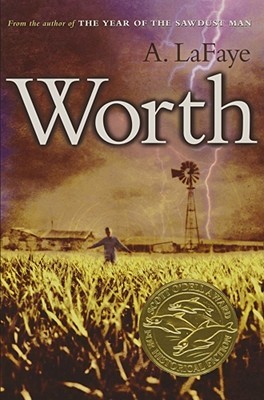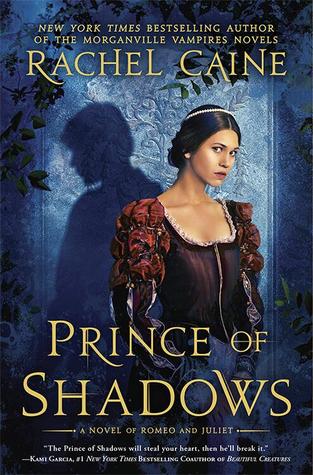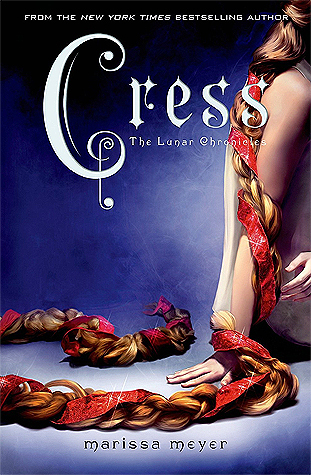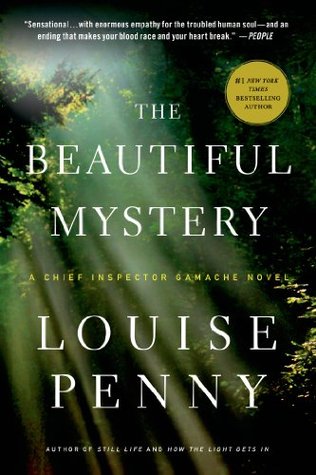I received this book for free from my own shelves in exchange for an honest review. This does not affect my opinion of the book or the content of my review.
Source: my own shelves
Peaches for Father Francis
by
Joanne Harris
literature in Hardcover edition on October 2, 2012 and has 453 pages.
Explore it on Goodreads or Amazon
Other books by this author which I have reviewed include Chocolat, The Girl With No Shadow, Doctor Who: The Loneliness of the Long-Distance Time Traveller (Time Trips)
If I would give this a “7” if the rating system let me.
Third in the Chocolat series of love and tolerance. Based in a small village in France — Lansquenet-sous-Tannes to be exact.
You will know the first story about Vianne as the movie starring Juliette Binochet and Johnny Depp, Chocolat.
Warning: Just to prevent a nasty surprise, some Chocolat links in this post are to a page on Amazon.com where you can rent or buy the DVD while other links are to its Goodreads page!
Pssst, be sure to sit down to read this with a loaf of good French bread, some cheese and olives, chocolate truffles, hot chocolate milk, and a lovely variety of Middle Eastern food — too many tasty treats to mention!
My Take
I absolutely adored this. And I absolute hated the ending. Harris, damn it! You’ve left us hanging again! Do they stay? Or do they go? Does Vianne stay with Roux? What happens!!?
I adore all the Joanne Harris books I have read to date. She’s brilliant! Absolutely brilliant. In Peaches for Father Francis, Harris shows us the truth about religion. About people. The intolerance and excuses people make and use to further their own ends, no matter which side they fall on, be they Muslim or Christian. The tolerance and love demonstrated by people without an axe to grind — be they Muslim or Christian.
It simply goes to show that people are people no matter where you are, no matter what your culture. Although, Harris does take time out to poke fun at close-minded villagers who see anyone not born in their town as foreigners.
It’s a cheeky group in Lansquenet with so many finding ways around the many rules of the EU, the church, and the community’s expectations.
Yes, I am angry that there are still idiots out there who believe that the woman is at fault if she is raped. That they will go so far out of their way to destroy her. And I do not doubt that it was some idiot man’s idea — way back when — to blame it all on women and make himself out to be the poor innocent, seduced by the evil wiles of some poor maidservant scrubbing a floor on her hands and knees. There is no excuse for a man to take a woman against her will. The cowardice of a man who will do this makes me so very angry. That he is not condemned for his assault is despicable. Even worse is a community that could actually believe this. And it still occurs in the so-called Christian world as well. No, it’s not as bad in more advanced countries as is depicted in the Muslim communities of which Harris writes which are so incredibly awful in their denunciations, but that any person can still think this is just…arghhh!
I don’t think it’s essential to have read the first two in this series, but I think understanding and appreciating Peaches for Father Francis will be so much greater if you do. I’ve only seen the movie, Chocolat, and I haven’t read The Girl with No Shadow (also known as The Lollipop Shoes), and I found I was floundering a bit.
As much as I adore Joanne Harris, I really must pick up the printed stories. I’d be doing myself a disservice if I didn’t.
That said, the inner conflicts in this story are 1) those suffered by Father Francis in his intolerance for Islam and his questioning the distance he has always maintained between himself and his parishioners and 2) Vianne’s questioning of her relationship with Roux and her habit of running. The tolerance comes from both sides as well with Vianne’s acceptance of people as…huh, who knew!…people(!) and Mohammed Mahjoubi with his more realistic view of Islam.
There are several reasons for the contention between the Muslim and Christian communities: the French see the politeness of the Muslims as rude while the Muslims are tired of being condescended to and several in the Muslim community are stirring things up. I did enjoy Harris’ summation of Caro and the father’s own ideas of how “open” they were culturally. So much of it is fear, intolerance, and anger. It takes someone like Vianne and the disastrous events in this story to change things around.
I also feel like something of a hypocrite because I think that if someone is going to move to a country, they have an obligation to fit into that country. Or leave. I have no objection to their retaining their own culture and traditions…I’ve certainly enjoyed the melting of so many cultures into America’s pot. But, they chose to come here. If the situation were reversed, and I were moving to their country, I’m sure I’d be expected to fit in. Then again, this is pretty typical behavior between recent émigrés and natives. Just look back to different eras in American history and the different nationalities who were reviled as they flooded American shores.
Considering how quick they were to run Vianne out of town eight years ago, they’re even quicker to welcome her back!
Arghh, going back over my notes, knowing what I now know…he is SUCH scum!!! And I don’t think any better of his mother! Who does he think he is barging into someone’s home and then being angry when he’s not made welcome! I’d sic my dog on him too!
Ya know, it’s a little scary that the three Christian priests in this are so very unChristian. On the whole, this is a story of christian charity versus snobbish surface adherence. What the neighbors think versus doing the right thing with your heart in the right place with care for others. Something people on both sides do. I love what Mohammed says about God not caring what, where, or when you eat. It’s a philosophy echoed by Vianne: to not follow rules without thinking. That God doesn’t care what we wear or who we choose to love.
And it’s another wonderful point Harris makes about food. The great leveler between peoples. One that is highlighted with the celebration of the end of Ramadan.
The Story
It’s a letter from the dead that brings Vianne Rocher back to Lansquenet. A town she had sworn she would never return to. Now she’s being pulled back by Armande’s presentiment. Tentative, anxious, Vianne is somewhat nervous of returning, for the villagers and the priest were quick enough to force her out.
It’s an odd situation when she does appear as many are eager to welcome her back. Even the priest who did his best to eject her. The tables have turned, for now the Church and the village are planning to run Father Francis out of his ministry. His chances are not helped by the hostility with which the Muslim community views him. One which has become increasingly traditional amidst their mutterings of war. Then there are the rumors that the good father is behind the Muslim school’s torching.
It’s become a hotbed of simmering anger with verbal, physical, and graphic attacks, all just waiting for Vianne to defuse it.
But she has her own worries. Ones that concern Roux and Joséphine.
The Characters
Vianne Rocher is a wanderer and a runner. These past four years with Roux have been the longest she’s ever stayed anywhere. Her mother told Vianne she was a witch and convinced Vianne that she was one too. She does have a magic about her. She’s open to the possibilities and she is willing to give anyone her friendship.
Anouk is her daughter and fifteen now; Pantoufle was and is her invisible rabbit friend. Rosette is the eight-year-old daughter she has with Roux; Bam is her special monkey friend. Roux is a gypsy, a river-rat whom Vianne met in Chocolat. I suspect a great deal of their story, along with Rosette’s, is in The Girl with No Shadow. Jean-Loup Rimbault is Anouk’s friend in Paris.
The people of Lansquenet-sous-Tannes
Armande Voizin has sent Vianne a letter eight years after she died. (To truly appreciate Armande, you really must watch Chocolat; she is amazing!) Luc Clairmont is Armande’s grandson and heir. Caro Clairmont still runs the village in her poisonous way while her husband, Georges, fleeces the community and government with his shoddy construction company. Joline Dru is of Caro’s ilk and runs the village school; her son, Jeannot, is quite friendly with Anouk. Bénédicte Acheron is one of Caro’s best friends…until the frock incident; Louis Acheron is part of the plot against the father. François and Karine are his sons and they are friends with Du’a and Maya.
Curé Francis Reynaud is still a cold man, but one who believes he learned some important lessons from Vianne Rocher. Considering his actions, he still has a way to go. He’s a rough-and-ready priest, willing to mete out Aves and punishment and just as quick to take offense. Père Henri Lemaiâtre is the smarmy git of a circuit priest whom the bishop wants to take over Saint-Jérôme’s from Reynaud.
Joséphine Bonnet, who was Muscat, now runs the Café des Marauds. She’s a rebel following in Vianne’s shoes, although she’s strangely reluctant to visit Vianne. Jean-Philippe Bonnet, a.k.a., Pilou, is Joséphine’s eight-year-old son and he has a dog, Vladimir, who is a believer in free speech. Paul-Marie Muscat was her jerk of a husband.
Guillaume Duplessis rebels in his own way and still has Patch to walk. Narcisse runs a produce shop; Poitu the baker; and, Charles Lévy has his own little feud going with Henriette Moisson.
Mohammed Mahjoubi is the imam of their community in Le Boulevard P’tit Baghdad. I love this man…he’s so realistic! He is all for abandoning old traditions and fitting in with the modern world. He lives with his eldest son, the easily led Saïd, who is married to Samira. Saïd opened a gym where the men congregate. They have two daughters — Sonia and Alyssa. The gorgeous and charismatic Karim Bencharki is married to Sonia. Inès Bencharki is said to be Karim’s sister and she has a child, Du’a. Personally, I wanted to smack her just about every time she opened her mouth. And then we get to the end…
Fatima is married to Mehdi al-Djerba. Zahra and Yasmina are their daughters. Yasmina is married to Ismail Mahjoubi, the youngest son of the imam and Maya is their five-year-old daughter. Quite a cheeky little thing! Omi al-Djerba is Fatima’s mother-in-law and she takes after Armande in spirit.
Zozie de l’Alba is mentioned frequently. I hadn’t kept up and was not aware there was an earlier book between this one and Chocolat — The Girl with No Shadow.
The Cover and Title
The cover is gorgeous. A soft, hazy green fog blankets the tree tops and steeple of a church while a band of deep blue lozenges banded in a lighter blue form a border at the top through which the branches of a peach tree poke, leaves, peaches, and all. It certainly suits the feel of this story.
The title is a hope. Almost a prayer for Reynaud with a promise of Peaches for Father Francis in the peach pit Vianne gives him.












